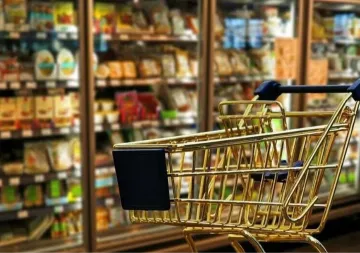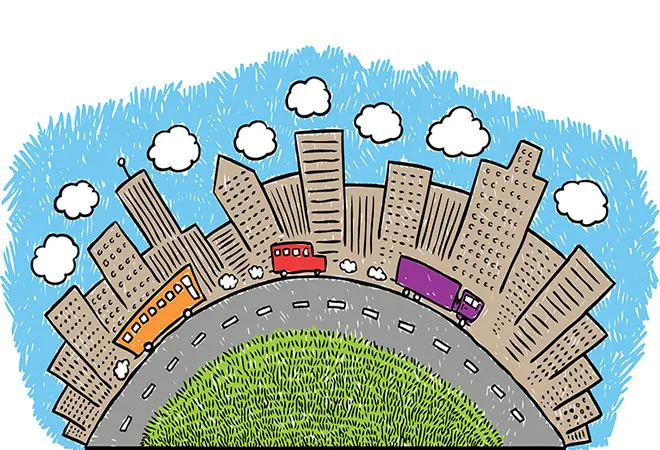
2020 has been a year of crisis and wicked global challenges that the pandemic of COVID-19 created a series of long-term shocks to the economies in Asia and the world. With the high rate of structural layoff and unemployment, slow down of the global economy and disruption of the global supply chain, there were rising phenomena such as overseas workers repatriating to the home provinces, consumption behavioral changes and rethinking of land and housing planning. It gave rise to multiple labour supply shocks to emerging cities, and hence economic demand changes and their supplies.
On the other hand, in the current conventional development economics and models, it would be foreseeable that the rate of economic development and social vibrancy driven by smart city implementation in 2nd and 3rd tier cities in Asia would be lagged behind that of the 1st tier cities’, due to the lack of comprehensive policy evidence and data infrastructure built-in for the cities. The pandemic shocks create unique scenarios where the local governments and private sector in emerging cities find it challenging to formulate an effective long term assistance and solutions.
While such a crisis may potentially widen the inequality gap among the emerging cities in Asia, it may actually open a window of opportunity for the local government and the private sectors to come together for a common agenda to collaborate and develop an effective and visionary action plan ahead for recovery.
Roadmap to the recovery, by reinventing the realms
In the face of the pandemic shocks, the governments alone at best provided limited budget and policy support to slow down the socio-economic damages to the society. In the case of developed economies, such as Singapore, had announced four economic stimulus packages within a short course of four months in 2020, in total of 100 billion Singapore dollars (US$ 70.4 billion). However, in the case of many other developing countries, there had been reports of policy failures and paralysis of governance as there were lack of effective measures to maintain the impacts brought by the pandemic.
Are we made to reset and reconsider a more resilient way to build for sustainability for the next generations?
In this regard, to maintain the residual integrity of the current economy, supply chain and development, it may further come to responsibilities of the private sector to collaborate collectively, together with the public sectors including the local government, and reinvent the realms of future business and socio-economic development. All in all, the new normal would be about reinventing the realms. How would the cities be further planned and developed in the future? Are we made to reset and reconsider a more resilient way to build for sustainability for the next generations?
City profile 1: Rising digital community and urban data lab in Bandung city
Along with economic shocks to the Bandung city, it comes to the policy planning challenges of the local city government and development agencies such as tourism, heritage buildings and economic growth with human capital planning. Bandung city has been struggling with their conventional and inconsistent policy planning. While the local creative community and innovation(entertainment, media production and designs) have been well-known nationally and regionally, the lack of integrated digital data infrastructure in the entire city both in public and private sectors lead to a sharp economic disruption when the pandemic hits.
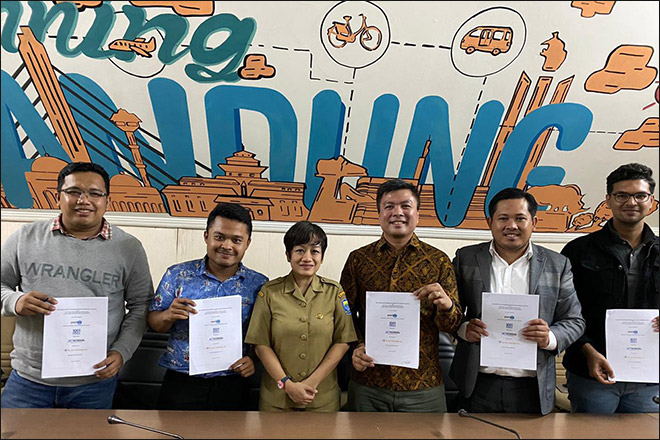 Source: Facebook page ― Future City Summit
Source: Facebook page ― Future City Summit
In January 2020, with a development assistance provided by the local and regional urban development community and technology startup communities, an initiative of Urban Data Lab was established together with the local city government of Bandung city, with a vision to renovate the 1,600 idle heritage buildings(old shophouses) into digital urban data hubs, along with a series of bottom-up digitalisation means provided by local education technology startups, foreign rural bank digitalisation providers and telecommunication corporates. The cluster of urban transformation welcomes incoming and local technology communities for human capital preparation, ecosystem building and technology business development.
City profile 2: Evidence and data-driven circular innovation, ‘Bamboo economy’ in Bali island
Besides the urban digital transformation, cities of other characters faced similar shocks. In the peak of the pandemic death toll in March and April in 2020, tourism cities such as Denpasar in Bali island faced air travel shut down. Inbound tourist traffic dropped 100% at the time. Over 40% of the businesses in catering, tourism and hospitality sectors suffer from cash illiquidity, seeking for alternative revenue sources and structurally massive staff layoff.
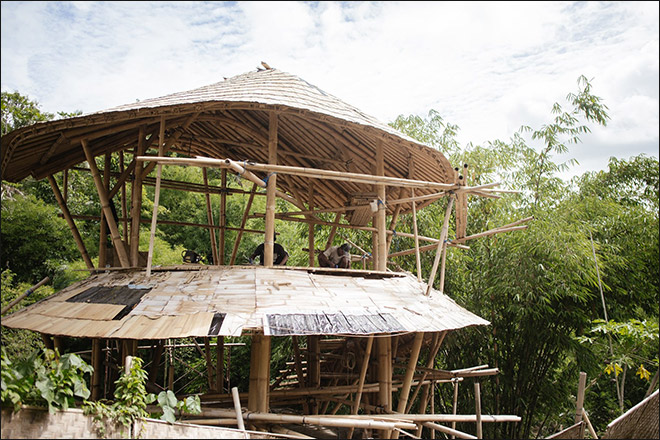 Source: Facebook page ― Future City Summit
Source: Facebook page ― Future City Summit
An iconic case study was conducted by a regional urban development community, Future City Summit, in the early phase of pandemic during January 2020, with the local Denpasar city government and a local ecotourism and hospitality provider, Sun Sang Eco Village, where the eco-village had to face staff layoff and seek for business transformation due to the rapid drop of incoming tourists and accommodation booking. Meanwhile, many local authentic architecture and housings face maintenance challenges as the supply of the building materials, bamboo (which has been supplied by The Philippines and Vietnam), may be in shortage soon due to the disruption of the regional supply chain.
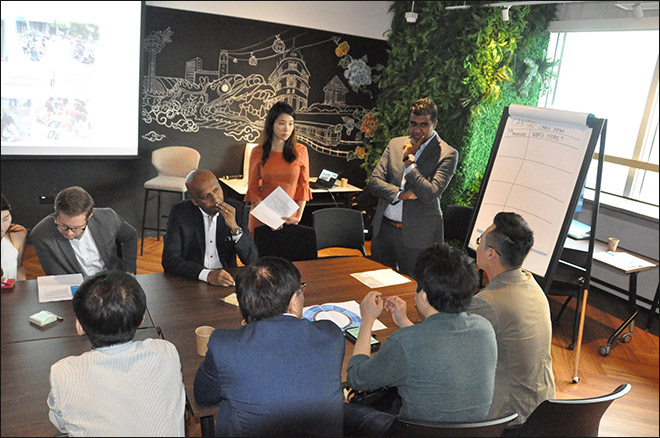 Source: Facebook page ― Future City Summit
Source: Facebook page ― Future City Summit
In the case study, as part of the development programme ‘Public Private Partnership by Youth,’ the urban development community collaborated with both Harvard Graduate School of Design and local academia Faculty of Engineering of Udayana University in Bali for delivering urban landscaping, stakeholder analysis, impact evaluation and environmental design engineering. A local socio-economic self-sufficiency proposal, namely ‘Bamboo Circular Economy’ was presented to the local city government, owner of the Sun Sang Eco Village and its local residents in the neighbourhoods. It aims to adopt the skill capacity of the local workers and designers with the materials’ characteristics and the life cycle of bamboo from forest harvest to upcycling upon its aging in the buildings. Over 120 Ha of bamboo forest in Bali Island was proposed to be the breeding ground for sustainable harvest for creating self-supply of building materials, while the aging bamboo from the buildings would be collected and up-cycled into other utilities such as furnitures.
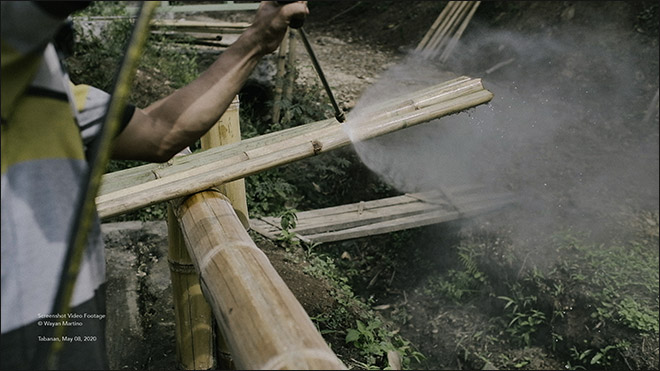 Source: Facebook page ― Future City Summit, uploaded by Wayan Martino
Source: Facebook page ― Future City Summit, uploaded by Wayan Martino
The ‘Bamboo Circular Economy’ proposal was accepted in the time of March during the peak of the pandemic in Bali. Sun Sang Eco Village was transformed into a bamboo treatment centre and factory for labors upskilling and trade community for piloting the circular economy.
A global movement of digitalisation, for good cities and socio-economic equality
Bandung and Denpasar are not exceptional cases among emerging Asia. At the glimpse of time, urban digitalisation with resilient data infrastructure and pragmatic innovation for sustainable economy are the fundamental growth drivers in the time of post-pandemic era as a recovery. It would imply a need for a global movement that takes different voices and future leaders to come together for creating a new hope.
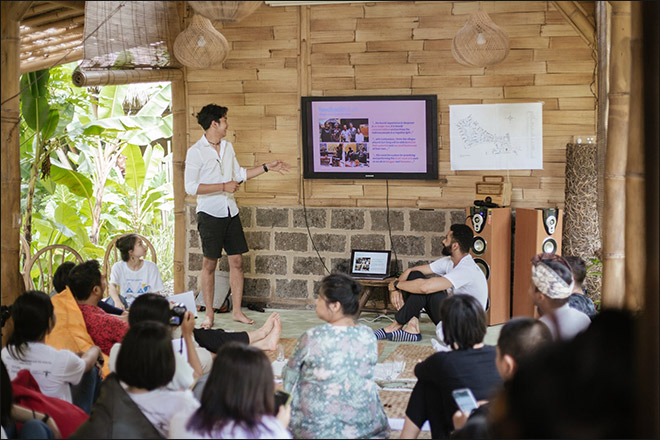 Source: Facebook page ― Future City Summit
Source: Facebook page ― Future City Summit
One of the urban digital transformation advocate organisations, Good City Foundation, assembles with other network organisations and professional networks such as Southeast Asia Creative Cities Network, ASEAN Smart Cities Network E-Forum and Urbanetic in Singapore to initiate a consortium, namely 2nd tier Southeast Asian Cities Evaluation Network (2SEACEN) to construct a benchmarking model to serve as a common development tool for both the policymakers, town planners and financiers in private sectors. It positions itself as a public good as a planning policy sandbox and an alternative credit rating framework for development financing.
Global wicked development challenges as such in the face of world-wide pandemic would only be solved by substantial regional and inter-cities collective efforts, entrepreneurship and pragmatic innovation. The consortium calls for more supporting parties and partners for joining the movement, for better cities of tomorrow.
The views expressed above belong to the author(s). ORF research and analyses now available on Telegram! Click here to access our curated content — blogs, longforms and interviews.




 Source: Facebook page ― Future City Summit
Source: Facebook page ― Future City Summit Source: Facebook page ― Future City Summit
Source: Facebook page ― Future City Summit Source: Facebook page ― Future City Summit
Source: Facebook page ― Future City Summit Source: Facebook page ― Future City Summit, uploaded by Wayan Martino
Source: Facebook page ― Future City Summit, uploaded by Wayan Martino Source: Facebook page ― Future City Summit
Source: Facebook page ― Future City Summit PREV
PREV

